The warmth of Nigeria
March 7th, 2017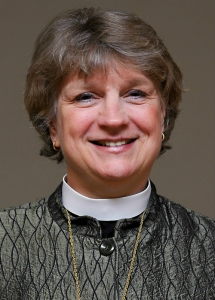
By Bishop Ann Svennungsen
In the midst of 95 degree heat and under cloudless skies, some 30,000 Lutherans gathered for a five-day annual conference in Demsa, Nigeria. Arriving in vehicles of all sizes and kinds – including pick-up trucks with families sitting on top of their belongings in the cargo bed – attendees set up temporary shelters to house them for the week.
.
Bible studies, prayer, song, dance, and lively conversations – these were the center of the celebration, culminating in the final worship service which included the Installation of Archbishop Musa Filibus.
.
When the Minneapolis Area Synod gathers in assembly, staff is always hoping that we can get 600 or more people to participate for a little more than 24 hours. As I told those gathered in Demsa, I couldn’t imagine 3,000 Lutherans together for a week, much less 30,000.
.
Even more, the gathering was remarkable because it was held in an open field fewer than 40 miles from the 2015 Boko Haram bombing in Yola; fewer than 200 miles from 2016 church burnings and killings in the north. Many precautions are taken – I never felt afraid – but I was overwhelmed and deeply moved by the witness of these Christians, publicly singing their love of Christ in the face of persecution.
I was overwhelmed and deeply moved by the witness of these Christians, publicly singing their love of Christ in the face of persecution.
I am so pleased that I was finally able to visit our companion synod in Nigeria. When our synod delegation travelled there in 2014, my son was in high risk chemotherapy, so my first calling was with him. However, now that I’ve made this trip, it won’t be long before I start talking about the next.
.
From small to significant, here are my current top ten reasons to plan the next trip:
.
10. It is warm in Nigeria in February.
.
9. The air travel is not too ominous (8 hours to Paris; then 7 hours to Abuja, Nigeria).
.
8. We have much to learn from our Nigerian brothers and sisters. And because English is Nigeria’s official language, such learning comes easier for sojourners from the U. S.

.
7. Our hosts from the Lutheran Church of Christ in Nigeria (LCCN) are generous beyond measure.
.
6. The Minneapolis Area Synod is the only ELCA synod serving as a companion synod to the Lutheran Church of Christ in Nigeria (while 19 ELCA synods relate to the Tanzanian dioceses).
.
5. American guests are able to see the fruits of our synod’s missionaries there: Mary and Jonathan Preus, Gary Sande, and Brad Holt.
.
4. The new archbishop has been nominated to serve as President of the Lutheran World Federation.
.
3. The LCCN health services – with projects ranging from the new Demsa Hospital to malaria prevention to health education to building wells – is served by a staff that will impress you with their competence and spirit.
.
2. It is amazing to become friends with such loving sisters and brothers in the faith.
.
1. The inspiration from the witness of the LCCN to Jesus Christ will sustain you long after you return home.

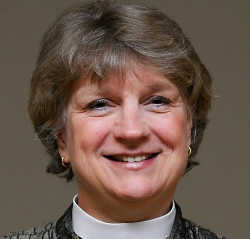

 OUR ELCA SOCIAL TEACHING (
OUR ELCA SOCIAL TEACHING ( However, one of the most troubling takeaways for me was the statement that only 25-30% of ELCA rostered leaders and staff with pensions managed by Portico choose the Social Purpose Fund for their investments. The impact of this is staggering:
However, one of the most troubling takeaways for me was the statement that only 25-30% of ELCA rostered leaders and staff with pensions managed by Portico choose the Social Purpose Fund for their investments. The impact of this is staggering: By Bishop Ann Svennungsen
By Bishop Ann Svennungsen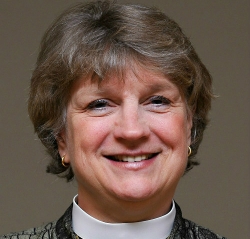
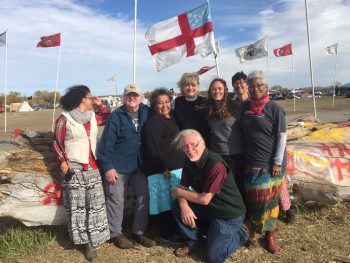 Let me begin with a caveat: We Lutherans are nothing if not realists about human causes. We are the first to say that there are no perfect persons; we are all simultaneously saint and sinner. Likewise, there is no perfect group of people; there is no perfect movement of people. The gathering at Standing Rock is not without that ambiguity.
Let me begin with a caveat: We Lutherans are nothing if not realists about human causes. We are the first to say that there are no perfect persons; we are all simultaneously saint and sinner. Likewise, there is no perfect group of people; there is no perfect movement of people. The gathering at Standing Rock is not without that ambiguity. our visible stand will work for good. These collective actions can inform our own sacrifices for the healing of God’s world – spending time in prayer, using fewer fossil fuels, sharing money to support others, becoming more and more aware of the many moments each day that God might be calling us to work for good.
our visible stand will work for good. These collective actions can inform our own sacrifices for the healing of God’s world – spending time in prayer, using fewer fossil fuels, sharing money to support others, becoming more and more aware of the many moments each day that God might be calling us to work for good.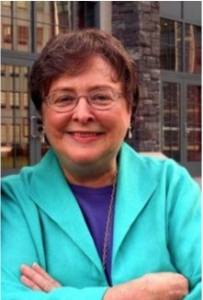
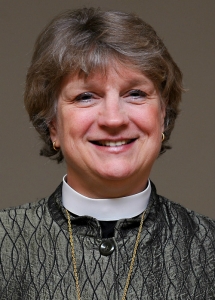 When I tell my colleague bishops about our plan for the synod to host “God in your Mercy, Hear our Prayer: An Election Year Worship Service,” they have two immediate responses: “What a great idea. What an impossible task.” The consensus is that, yes, we should pray for elections and governmental leaders AND, no, it won’t be easy to lead such corporate prayer without appearing biased or partisan.
When I tell my colleague bishops about our plan for the synod to host “God in your Mercy, Hear our Prayer: An Election Year Worship Service,” they have two immediate responses: “What a great idea. What an impossible task.” The consensus is that, yes, we should pray for elections and governmental leaders AND, no, it won’t be easy to lead such corporate prayer without appearing biased or partisan.